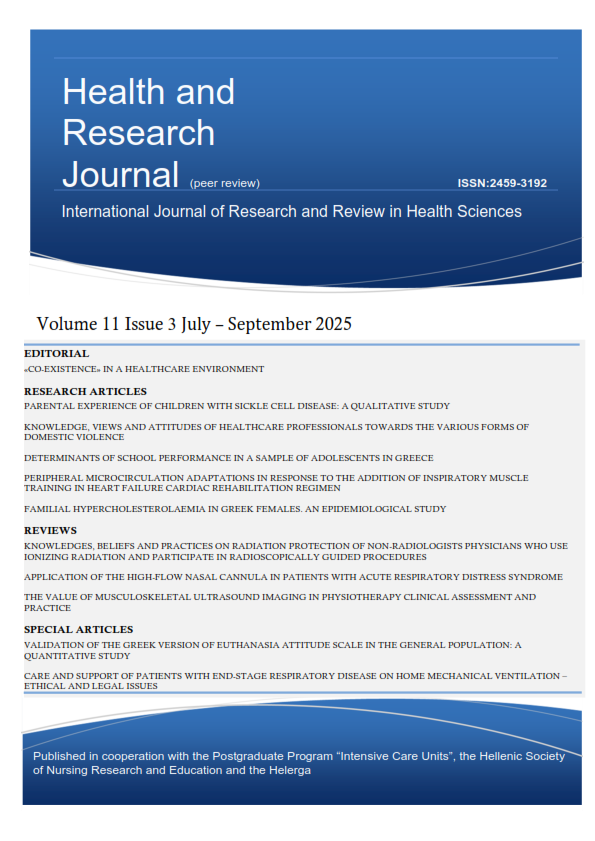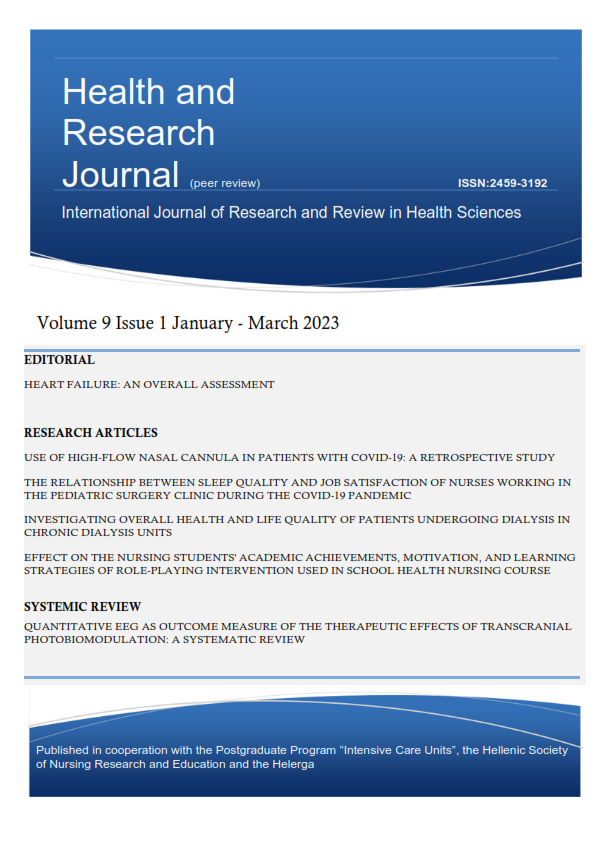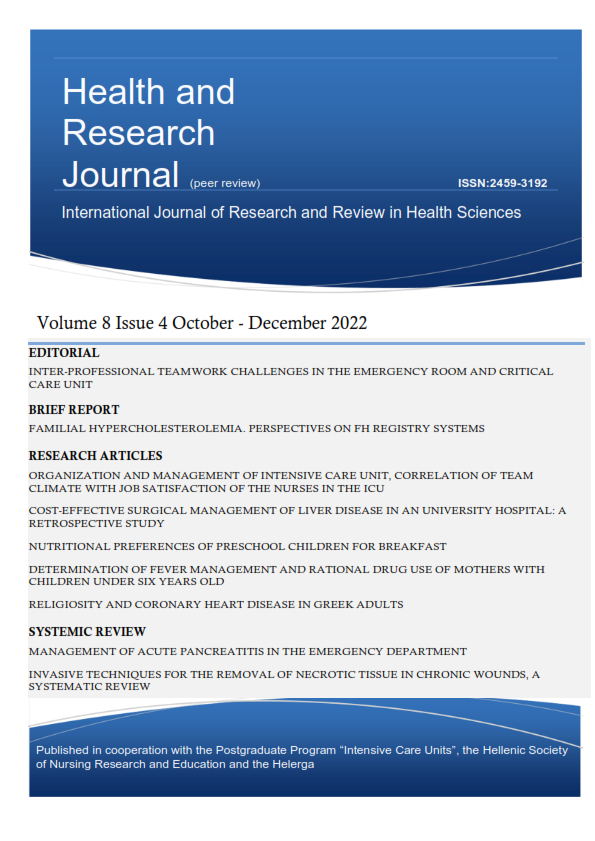Parental experience of children with sickle cell disease: A qualitative study

Abstract
Background: Sickle Cell Disease (SCD) is a painful disease with long-term transfusion therapy, hydration, hydroxyurea therapy, and primary care parents are severely affected psychologically, socially, cognitively, and economically. This study evaluates the parental Perspectives on the Challenges of Pediatric Sickle Cell Disease.
Method and Material: The qualitative phenomenological method was used to determine the parents’ experiences. The study sample included 12 parents who met the inclusion criteria. Individual interviews, an introductory information form and a semi-structured interview form were used for data collection. The data were analyzed with Colaizzi's seven-step method.
Results: The mean age of the parents was 44.83±6.08 (min. 34; max. 54); the children were 14.58±3.20 (min. 8; max. 18). Four themes of the interviews were established: psychosocial distress, family relationship, managing pain, and financial burden. Parents stated that their child experienced feelings such as stress, unhappiness, fear of death, demonstrated reluctance to attend check-ups, maternal attachment and constraint. Moreover, parents said that their other children were also affected emotionally exchibiting jealousy and loneliness. For pain management in children, parents reported using non-pharmacological strategies such as encouraging balloon blowing, providing massages, applying hot water bottles to affected areas, and assisting their children with hot showers. Parents also experience economic burdens, primarily due to transportation costs for hospital visits and the increased nutritional needs of both their children and themselves.
Conclusions: The results of the study revealed that the parents who have a child with SCD experience several psychological problems, social isolation, difficulty in pain management and large financial cost to health services. Both the healthcare system and medical professionals should be aware of the challenges faced by parents of children with sickle cell disease (SCD) and provide them with appropriate support. It is recommended that interventions be planned and implemented in a way that maximizes the quality of life of children and their families.
Article Details
- How to Cite
-
Kahraman, D., & Karakul, A. (2025). Parental experience of children with sickle cell disease: A qualitative study. Health & Research Journal, 11(3), 192–207. https://doi.org/10.12681/healthresj.37943
- Section
- Original Articles
Copyright notice:
Authors retain copyright of their work and grant the Health and Research Journal the right of first publication.
License:
Articles are published under the Creative Commons Attribution 4.0 International License (CC BY 4.0). This license permits use, sharing, adaptation, distribution, and reproduction in any medium or format, including for commercial purposes, provided that appropriate credit is given to the author(s) and the original publication in this journal, a link to the license is provided, and any changes are indicated.
Attribution requirement:
Any reuse must include the article citation and DOI (where available), and indicate if changes were made.




